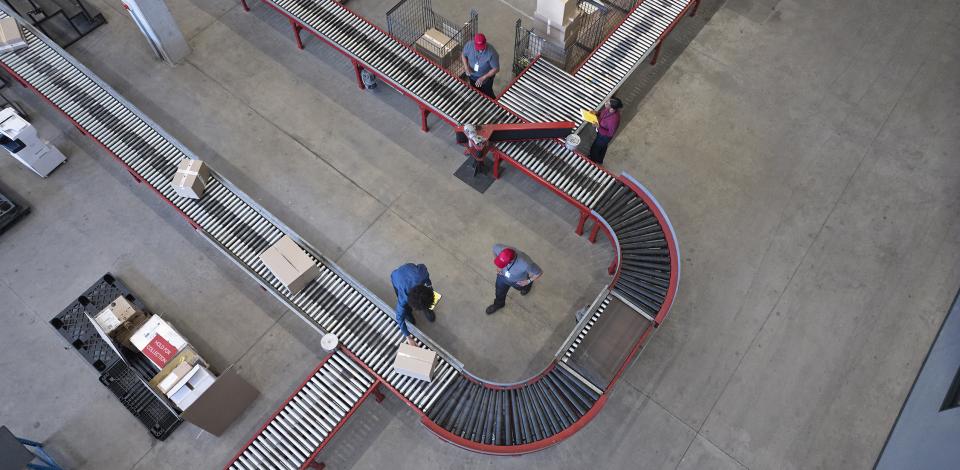What Is Supply Chain Management: Industry and Career Insights
Explore what supply chain management is, why it’s essential to business success, and how professionals keep products moving efficiently worldwide.

The modern economy depends on efficient, resilient supply chains. From raw materials to finished products, countless steps must align across industries and continents to keep goods moving. Consumers often see the result only (products arriving on shelves or at their doorsteps), but behind the scenes are complex networks of suppliers, manufacturers, logistics providers, and technology systems working in sync. Overseeing these processes are skilled professionals who ensure that operations remain cost-effective, adaptable, and reliable, even amid global disruptions.
What Is Supply Chain Management?
Supply chain management (SCM) is the coordination of every step involved in moving a product from its origin to its final consumer. It brings together sourcing, procurement, manufacturing, logistics, and distribution to create a seamless process that balances cost, efficiency, and reliability. In today’s global economy, supply chains are rarely confined to one location. A single product may rely on raw materials from multiple continents, advanced technology systems to track progress, and partnerships across dozens of organizations before it reaches the marketplace.
Beyond the physical movement of goods, supply chain management also involves data-driven decision-making and strategic planning. Companies use advanced analytics, automation, and forecasting tools to anticipate demand, mitigate risks, and respond quickly to disruptions such as natural disasters, geopolitical events, or shifts in consumer behavior.
Why Is Supply Chain Management Important?
Supply chain management ensures that the products and services businesses work hard to develop reach end users or customers. Without effective SCM, consumers would face constant shortages and delays, with ripple effects felt in virtually every community and industry.
In addition to influencing product availability and access, SCM holds major implications surrounding the cost of those products. It can be incredibly expensive to procure materials, assemble components, and ship finished products; associated costs entail not only energy and transportation but also labor, storage, and even compliance hurdles. SCM does not eliminate these expenses, but it can help minimize them by, limiting waste in its many forms while expediting costly and time-consuming processes.
Ultimately, SCM instills an element of trust and consistency in fields that could just as easily be dominated by uncertainty and confusion. Done right, this can support innovation while limiting the operational challenges that may otherwise stand in the way of core business objectives.
Supply Chain Manager Responsibilities
Comprehensive by nature, supply chain management calls for a precise balance between strategic planning and real-time responses to emerging challenges. To that end, supply chain managers provide broad oversight and bring a coordinated, data-driven approach to shaping the flow of goods. Through their core responsibilities, they seek to improve the efficiency and resilience of entire supply chains. Critical efforts include:
Planning
Planning allows supply chain managers to anticipate potential disruptions or other challenges, so they can adapt accordingly and avoid shortages or delays. Managers rely on forecasting to align resources with demand and prepare for seasonal or unexpected shifts. Strong planning also involves assessing risks across suppliers, transportation networks, and global markets. By taking a proactive approach, supply chain managers create flexibility and resilience within complex operations.
Sourcing
Strategic sourcing allows supply managers to access critical materials or services in a reliable and cost-effective manner. Without effective sourcing, every following stage in the supply chain will prove more costly and prone to disruption.
Sourcing begins with research and analysis, plus contract negotiation. This allows organizations to secure favorable terms, thereby limiting the cost of raw materials or components. Supply chain managers maintain strong relationships with suppliers, forging long-term partnerships but also adapting as needed in response to evolving consumer demands or market conditions.
Organizing Operations
Coordinating a diverse range of activities related to procurement, production, and distribution, supply chain managers aim to keep all areas of the supply chain working seamlessly and in tandem. They standardize workflows to promote operational consistency while also allocating resources strategically to make sure production remains on schedule — and, ultimately, customers remain satisfied.
Inventory Management
Tasked with maintaining the optimal balance between supply and demand, inventory management determines the overall flow of the supply chain, including:
- Raw materials and components
- Works in progress (WIP)
- Finished goods
- Backup stock or packaging materials
Supply chain managers optimize inventory management by forecasting demand, monitoring stock levels, and coordinating schedules, all with the goal of avoiding both overstocking and stockouts.
Delivery
Delivery is the stage where products reach their final destination, whether that’s a retail shelf, a warehouse, or directly to the customer’s doorstep. Supply chain managers oversee the logistics networks that make this possible, coordinating transportation providers, tracking shipments, and ensuring compliance with timelines and quality standards. Effective delivery requires balancing speed and cost while maintaining reliability, since delays or errors at this stage can directly impact customer satisfaction and brand reputation.
Managing Returns
Supply chain professionals precisely plan return policies and procedures to optimize reverse logistics. They may establish or oversee workflows for inspections, sorting, or refurbishments as well as analyze returns and related processes to uncover new opportunities for boosting value recovery and customer satisfaction.
Career Opportunities in Supply Chain Management
As you prepare for a future in supply chain management, be mindful of this field's rapid pace of change. Moving forward, already tech-focused supply chain managers can expect an even greater emphasis on tech-driven solutions, along with an increasingly global focus involving ethical sourcing and cross-border collaboration.
Effective SCM continues to prove a true competitive advantage, but tomorrow's supply chain managers will be expected to actively integrate cutting-edge technologies, including machine learning and artificial intelligence (AI)-powered systems. This means learning and earning credentials through coursework and certificate programs to secure your longevity in the supply chain and logistics industry.
During this time of transition, the following roles will remain relevant:
- Logistics manager – Logistics managers or logisticians ensure that products arrive at the right place and at the right time. Their work largely entails route planning and shipment processing. They may also provide warehousing oversight while striving for the ideal balance between demand and capacity.
- Materials manager - The work of a materials manager centers on the raw materials and components that eventually lead to finished products. This role serves as a link between procurement and production, ensuring that necessary materials are not only consistently available but also aligned with budgetary goals. Material and capacity requirements play heavily in this role, which is also driven by production schedules.
- Buyer/planner - Buyers tend to focus more on sourcing, while planners support seamless operations via forecasting and monitoring. If buyers are involved in material planning, however, they may be referred to as "buyer/planners."
- Supply chain manager - While the professionals highlighted above focus on specific stages or elements of the supply chain, they require direction and coordination from supply chain managers, who maintain a broader focus while overseeing end-to-end processes. Their goal is to keep procurement, production, and logistics in full alignment so that goods can move efficiently across the entire scope of the complex supply chain.
Unlock New Opportunities with Georgia Tech’s Supply Chain and Logistics Training
Make your mark in the quickly growing and highly influential field of supply chain management. Discover powerful opportunities with Georgia Tech’s Supply Chain and Logistics training — including numerous certificate programs that reflect today's most impactful supply chain specializations. Learn more about our SCM programs, including a supply chain management certificate, so you can gain an edge in a critical field.

